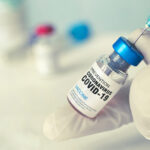HIGHER risk of cancer following COVID shots, U.S. Government data confirms
 (NaturalHealth365) One of the main criticisms of the unprecedented push to inject as many people as possible with the Pfizer and Moderna COVID shots is that these cash-cow drugs feature brand-new technology that has never been used in humans before outside of the research setting. And yes, that matters: even if it’s true that mRNA technology has been studied “for decades” according to the U.S. Centers for Disease Control and Prevention (CDC), just think of how many FDA-approved products have been pulled from the market after years or even decades of use, once it was determined that oops, they were quite harmful.
(NaturalHealth365) One of the main criticisms of the unprecedented push to inject as many people as possible with the Pfizer and Moderna COVID shots is that these cash-cow drugs feature brand-new technology that has never been used in humans before outside of the research setting. And yes, that matters: even if it’s true that mRNA technology has been studied “for decades” according to the U.S. Centers for Disease Control and Prevention (CDC), just think of how many FDA-approved products have been pulled from the market after years or even decades of use, once it was determined that oops, they were quite harmful.
When it comes to these mRNA COVID shots, the long-term safety risks are simply unknown – there’s no way it could be otherwise – which means that getting the shots or not should ALWAYS be a matter of personal choice, not something forced or coerced onto innocent citizens. This also means that public health officials must be vigilant about identifying potential safety signals to prevent more people from getting unnecessarily harmed by these COVID shots.
Are the right people paying adequate attention? And did official data from the United States government really just suggest that the COVID jab causes cancer?
VAERS data reveals a massive spike in cancer diagnoses following COVID jabs, far and above historical rates of all other vaxxes administered in past 13 years
According to Exposé News, recent U.S. government data confirms that the rates of new cancer diagnoses after an mRNA COVID jab increase by an unimaginable amount.
The data comes from the U.S. passive vax safety surveillance system, known as Vaccine Adverse Event Reporting System (VAERS). Here’s how it shakes out:
- Between December 2020 to August 5, 2022, there were 2,579 cancer-related adverse events reported following the COVID jabs
- Between 2008 and 2020, however, there were just 791 cancer-related adverse events reported associated with all other U.S. vaccines combined
- Looking specifically at the flu shot (of which there have been more than 1.7 billion doses administered between 2008 and 2020, according to the CDC, which is far more than the current number of COVID doses given in the U.S. at just 606 million), the COVID shots are associated with over 40 times as many new cancer cases than the former; according to the Exposé News analysis, these COVID jabs are 143,233.33% more likely to cause cancer than flu shots
VAERS data doesn’t prove causation, of course, but it can alert us to correlations that warrant further investigation. Plus, we know that VAERS is historically underreported, too, meaning the TRUE number of individuals newly diagnosed with cancer shortly following their COVID jabs could be much, much higher … and who knows what may happen five, ten, or twenty years in the future.
In case they move the goalposts and rewrite history to make sure things fit the narrative … here are the CURRENT lifetime risks of cancer for men and women
It’s naive to think that the ephemeral “power that be” never tries to gaslight the American public by changing definitions, “revising” webpages and virtually rewriting history. So, just in case that happens with U.S. cancer rates, let’s document what the current “official” data says, for posterity’s sake.
According to the American Cancer Society, these are the lifetime risks of some of the most common types of cancers in men:
- Bladder cancer: 1 in 26
- Colorectal cancer: 1 in 24
- Lung cancer: 1 in 16
- Melanoma of the skin: 1 in 27
- Pancreatic cancer: 1 in 49
- Prostate cancer: 1 in 8
Likewise, these are the lifetime risks of some of the most common types of cancers in women:
- Bladder cancer: 1 in 86
- Breast cancer: 1 in 8
- Colorectal cancer: 1 in 25
- Lung cancer: 1 in 17
- Melanoma of the skin: 1 in 40
- Ovarian cancer: 1 in 85
- Pancreatic cancer: 1 in 61
- Uterine cancer: 1 in 32
- Thyroid cancer: 1 in 55
Overall, about 4 in 10 people (39.5 percent) will be diagnosed with cancer at some point in their lifetime, according to the National Cancer Institute – already a shockingly high estimate based on data from 2015-2017. The question is, will we see a dramatic rise in lifetime cancer risk within the next five to ten years? If so, could the mRNA COVID shots and their possible detrimental effect on the human immune system have anything to do with it?
Of course, deciding to maintain a healthy lifestyle and adopting sustainable, health-conscious lifestyle practices can make a big difference to your individual cancer risk. And while the research is inconclusive, we do have some data (e.g., an August 2020 article published in Frontiers in Oncology) as well as plenty of plausible methods by which stress can contribute to or worsen cancer development.
So, please be mindful of your overall stress levels and your news and social media habits. Indeed, it’s important to be well-informed – but it’s also important to focus on what you can control and not let fear consume all your energy.
Sources for this article include:
CDC.gov
CDC.gov
Cancer.gov
Expose-news.com
NIH.gov
Hopkinsmedicine.org
Cancer.org
Bloomberg.com



